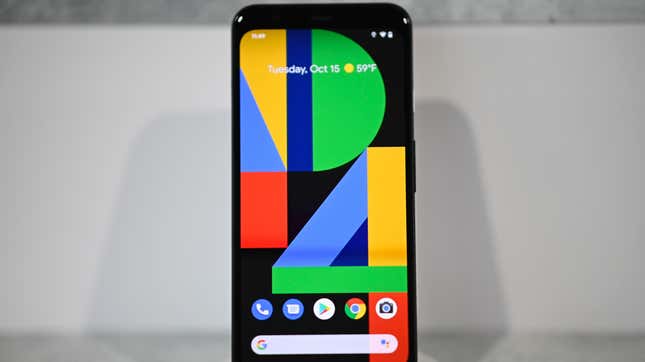
As the semi-proud owner of a cracked, dirty, degrading Google Pixel 3 phone, I would never make claims that its night camera is very good for taking pictures of something as fast moving as a meteor shower, let alone my late night, near dark selfie sessions (don’t judge).
Well, Google had allegedly paid some radio personalities to make similar claims about the Pixel 4 without even testing the phone at all. On Monday, the U.S. Federal Trade Commission said Google and the once-major player in digital radio iHeartMedia had aired thousands of deceptive ads for the Pixel 4 phone. From 2019 to 2020 the pair ran close to 29,000 endorsements, but in all that time, many of the radio personalities who were asked to boost the smartphone’s features never even got their hands on a Pixel 4, but were told to promote it anyway as if they had.
Now Google and iHeartMedia have agreed to pay a settlement to the FTC and seven other states for $9.4 million for running the fake endorsements. The order also signs Google and iHeartRadio to a consent agreement prohibiting the company from getting people in endorsements to claim they’ve used a product when they haven’t. After a 30-day public comment period, the FTC commissioners will vote whether to make the order final.
Though the company was once a giant in the space, iHeartMedia declared bankruptcy back in 2018, and had been working to repair its business and image ever since. However, in 2019, Google paid the legacy radio company $2.6 million to record and promote the Pixel 4 ads that included first-person endorsements from local radio personalities. According to the original complaint filed against both companies, iHeartRadio owns more than 850 AM and FM radio stations and allows the personalities of those stations to get extra cash for recording ads for clients.
According to the complaint, those radio personalities received a basic script that included lines like:
It’s my favorite phone camera out there, especially in low light, thanks to Night Sight Mode.
I’ve been taking studio-like photos of everything… my son’s football game… a meteor shower… a rare spotted owl that landed in my backyard. Pics or it didn’t happen, am I right?
Pixel 4 is more than just great pics. It’s also great at helping me get stuff done, thanks to the new voice activated Google Assistant that can handle multiple tasks at once.
Though the personalities could customize the script, they still never received a phone to make claims that they were using the cameras to take pictures of these rare meteor showers or any event where their child gets mauled in a football game. According to the FTC, one iHeartRadio employee even complained to Google that their personalities couldn’t use first-person tenses in ads if they never even held the phone in-hand.
Still, in late 2019 and early 2020 dozens of personalities in markets all across the country recorded ads “identical or substantially similar” to the original scripts, first-person tense included, and the ads were shared thousands of times on-air. According to the complaint, after Google wanted even more ads, an iHeartRadio employee again complained. A Google representative allegedly responded the company couldn’t provide phones “at this time” and instead linked the radio employee to an info page.
In the release, Bureau of Consumer Protection Director Samuel Levine called it a “blatant disrespect for truth-in-advertising rules.”
Google spokesperson José Castañeda told Gizmodo the company was “pleased to resolve this issue.” He added that Google takes “compliance with advertising laws seriously and ha[s] processes in place designed to help ensure we follow relevant regulations and industry standards.”
Google has been at the head of several other major settlements with states, including a $392 million agreement with 40 state attorneys general’s for not turning off location data collecting despite user settings indicating their data wasn’t being collected.